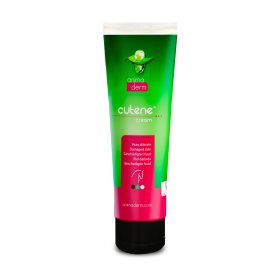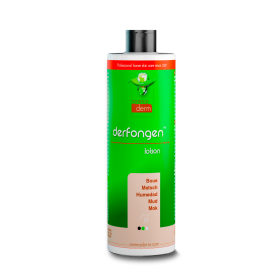Summer crusts on legs
Dry skin is skin that burns. Nostril, stripe and white socks are areas at high risk of photosensitization. For legs, it can look like mud scab. Care is very different in this case, as the skin needs to be highly moisturized and treated with particularly gentle care, despite the possible presence of crusts. Damaged elastin (which cannot be rebuilt) requires regular protection with high-quality UV filters, and traditional antibacterial soaps should be avoided
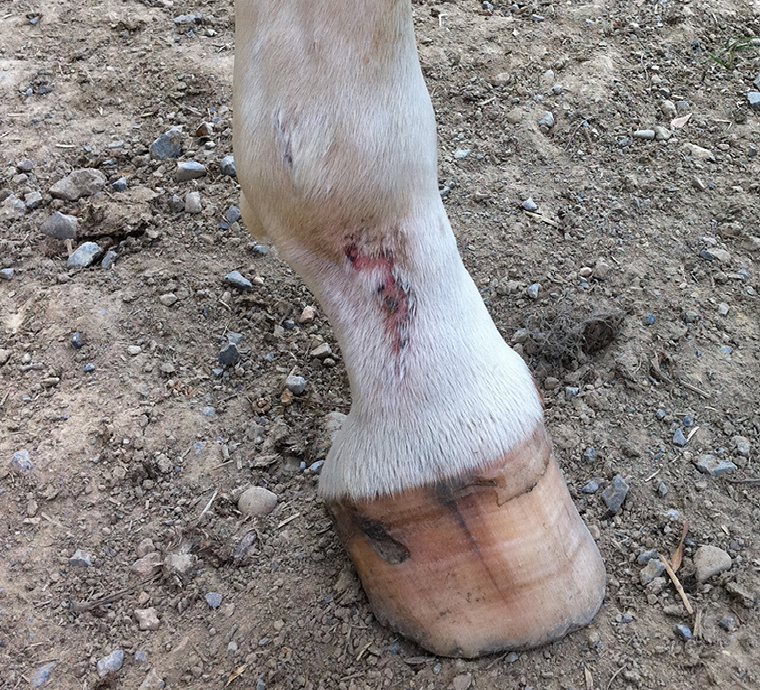
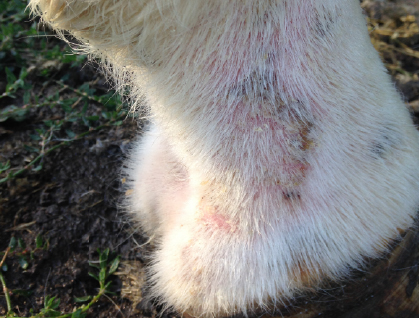
Shampoo every 3 or 4 days, but not more often, as water can become irritating to weakened skin. And don't shower with cold water for the duration of the treatment.
Cleansing with tea tree shampoo will purify the area, soften the crusts and leave a protective surface layer on the skin for 24 hours, limiting irritation. Leave on for a few minutes before rinsing, then dry well with a terry towel after shampooing.
Using the shampoo glove also makes it possible to apply shampoo more effectively without rubbing or irritating the skin, and reduces product wastage.
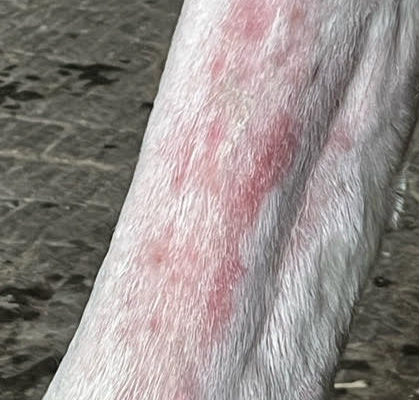
Skin repair automatically involves a number of needs: soothing the area, providing cellular regenerating agents, healing agents and epidermal boosters, combined with a powerful sun filter to protect against the UV rays present. Cutene should therefore be applied regularly (generally every 2 days, or every day if the skin has absorbed everything the day after application).
There's no need to cover the area with a bandage, or to wash off between applications. Cutene is also water-resistant.
If you're working in a quarry, simply protect the area with a work strip during the session to prevent sand from sticking to it.
Space out applications according to improvement. Don't apply it systematically, as the skin also needs air.
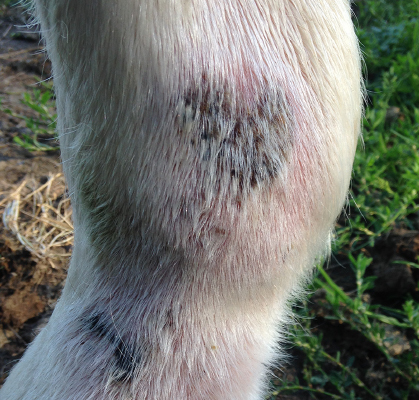
It will be necessary to use DERFONGEN instead of CUTENE. This milk is specifically designed for crusts and dermatophilosis.
Apply after shampooing. Reapply 3/4 days later.
PLEASE NOTE: In the event of very large scabs and heavily blackened skin, or if treatment has not brought about any real improvement, your vet will prescribe an antibiotic or corticoid-based cream.
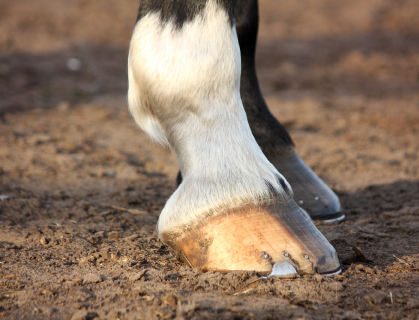
Once the skin has been repaired, the hair starts to grow back and the area appears smooth to the touch. However, it is essential to monitor the area regularly to avoid recurrence. Since photosensitization on the legs has damaged the skin's elastin, this area will unfortunately remain excessively fragile in the face of various climatic variations, in summer and winter alike. Regular monitoring and prevention of any new problems is therefore essential.
 ANIMADERM S.A.S
ANIMADERM S.A.S


